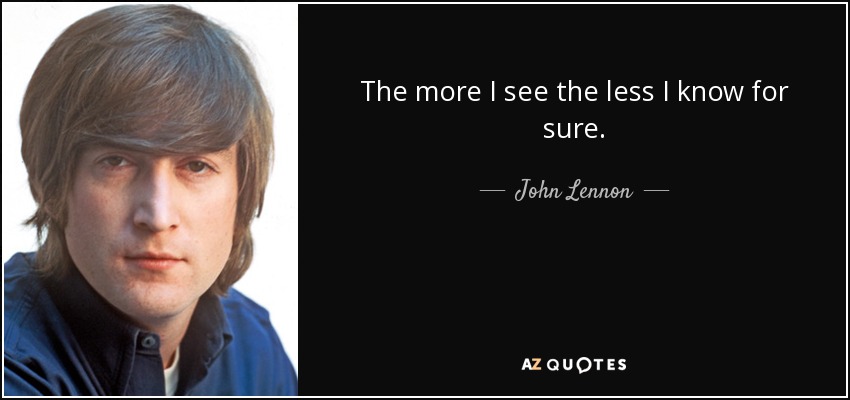The other point I can really see is that we don't know many things for sure if we assume a protestant approach. We have the principle of Scripture Alone and we have many different opinions on what scripture really teaches. One can always assert that those opinions that disagree with yours are avoiding what is clearly taught in scripture. Sometimes that is true. Still accusing people of that is uncharitable and in many cases unwarranted. People can arrive at many different conclusions with sincere hearts and sound reasoning. Yes some are just playing games with scripture but just excluding those does not eliminate the problem. Legitimate disagreements are very numerous and very significant.
So where does that leave us? Is liberal Protestantism the best answer? I found it untenable. You have to realize that this problem of uncertainty does not just apply to the question of the day. It applies to all questions. No matter what we are talking about we have some that see clear scriptural direction but we almost always have significant disagreement. Are there any exceptions? Certainly the list has grown a lot shorter during the last 50 years. If there is anything left where there is strong consensus you should not be surprised if even that breaks down at some point in the future. Differences of opinion about scripture are everywhere. If Christianity is to become agnostic on all these matters then that is quite a weakness.
So when we declare scripture to be inconclusive where do liberal protestants turn? In practice they turn to the culture. What does society say is the right answer to LGBT questions or anything else? Why not? The culture is strong. If your faith is not offering you anything solid then you end up in the same position as an atheist. You listen to what most people are saying and you go with that. If you don't you are going to be in for a fight and who wants to fight when one is not sure they are right?
The trouble is your Christian faith ends up being quite useless. Again and again you end up in the exact position as the atheist. Jesus said we would know the truth and the truth would set us free (Jn 8:32). Yet we end up not knowing much truth at all. Is this really the way Jesus mean it to work? My conclusion was No. Jesus has provided a way to let us know the Word of God even when there is much disagreement.
How do we get there? One way is to look at why people disagree about scripture. Mostly because they come from different traditions and bring different philosophical assumptions to the process of interpretation. Bryan Cross talks about that in this video as well at this website. Once we get that we can ask how Jesus tells us to avoid incorrect assumptions. Hint: it involves a role for the church.
